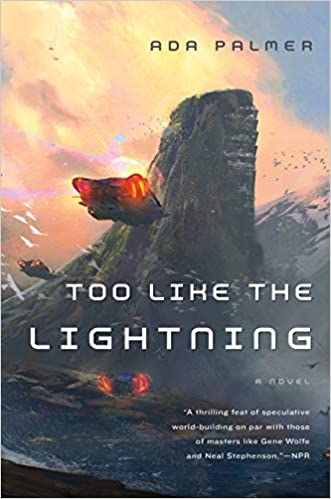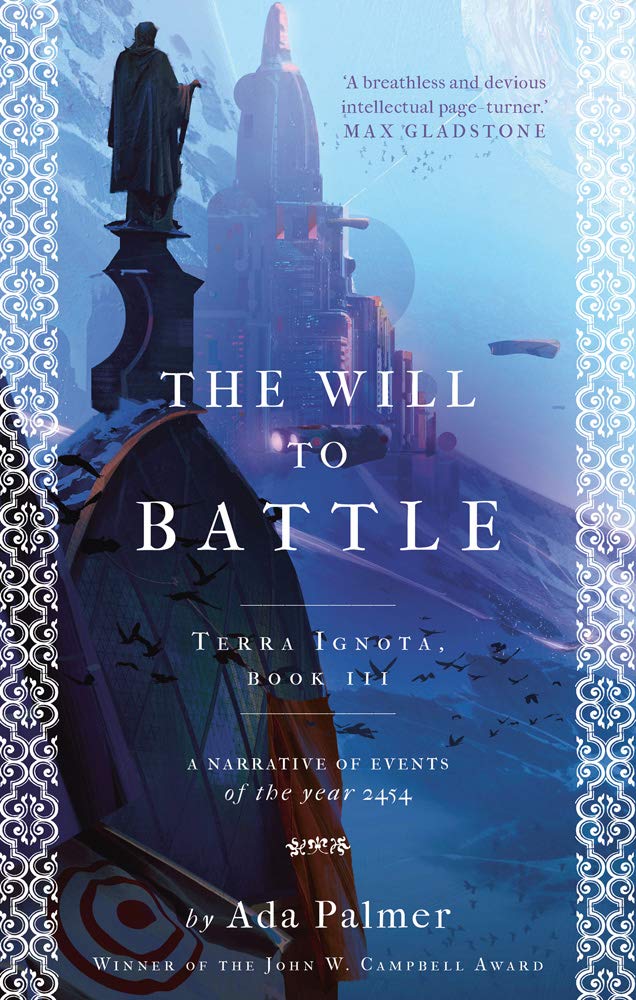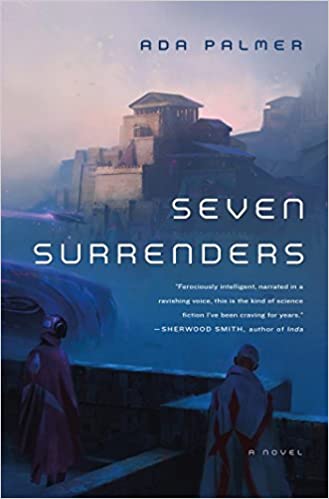Political science fiction epic, very brave. The long years of close to utopia suddenly ended.
Peace and order are now fictional figures of the past. Urticaria once firmly led corruption, deception and rebellion.
The year is 2454. Three centuries of peace and a hard-won golden age have come to an abrupt end.
The once steadfast leadership of the seven Hives is crumbling, soured by corruption and deception. Savagery and bloodlust, three-centuries suppressed, have been unleashed.
The terrible truth is that centuries of peace were bought with a trickle of secret murders. The killings were mathematically planned, meticulously organised to preserve the balance – to ensure no faction could dominate.
But now the secret is out, the balance has tipped, the Hives' utopian façade has slipped. Just days ago, humanity stood at the pinnacle of civilization. Now everyone – Hives and Hiveless, Utopians and sensayers, emperors and convicts, warriors and saints – is preparing for war.
Terra Ignota's second book, a political science fiction epic of extraordinary courage. In this world, almost instantaneous travel from mainland to mainland is free for everyone.
The year is 2454.
The sun is setting on a hard-won golden age. For three centuries, humanity has enjoyed peace and prosperity fuelled by technological abundance, oracular data analytics, careful censorship... and just a little blood.
In a world dominated by seven factions, or 'Hives', the price of peace has been a few secret murders, mathematically planned to ensure political and economic balance. But now the secret is out, the balance is slipping and war beckons.
Convict Mycroft Canner knew this war was coming – he committed his terrible crimes to forestall it. Now, he has just one card left, a wild card no degree of statistical genius could have predicted: a thirteen-year-old child with the power to work miracles. Turning thought into matter, matter in life, this child has the power to save the world, or to doom it.

From the winner of the 2017 John W. Campbell Award for Best New Writer, Ada Palmer's 2017 Compton Crook Award-winning political science fiction, Too Like the Lightning, ventures into a human future of extraordinary originality
Mycroft Canner is a convict. For his crimes he is required, as is the custom of the 25th century, to wander the world being as useful as he can to all he meets. Carlyle Foster is a sensayer--a spiritual counselor in a world that has outlawed the public practice of religion, but which also knows that the inner lives of humans cannot be wished away.
LEER MÁSThe world into which Mycroft and Carlyle have been born is as strange to our 21st-century eyes as ours would be to a native of the 1500s. It is a hard-won utopia built on technologically-generated abundance, and also on complex and mandatory systems of labelling all public writing and speech. What seem to us normal gender distinctions are now distinctly taboo in most social situations. And most of the world's population is affiliated with globe-girdling clans of the like-minded, whose endless economic and cultural competion is carefully managed by central planners of inestimable subtlety. To us it seems like a mad combination of heaven and hell. To them, it seems like normal life.
And in this world, Mycroft and Carlyle have stumbled on the wild card that may destablize the system: the boy Bridger, who can effortlessly make his wishes come true. Who can, it would seem, bring
COLAPSAR


